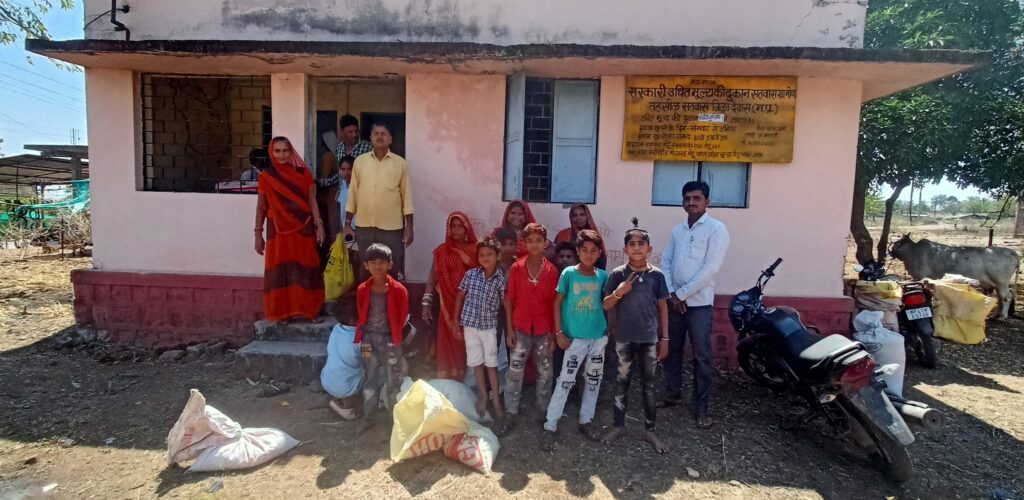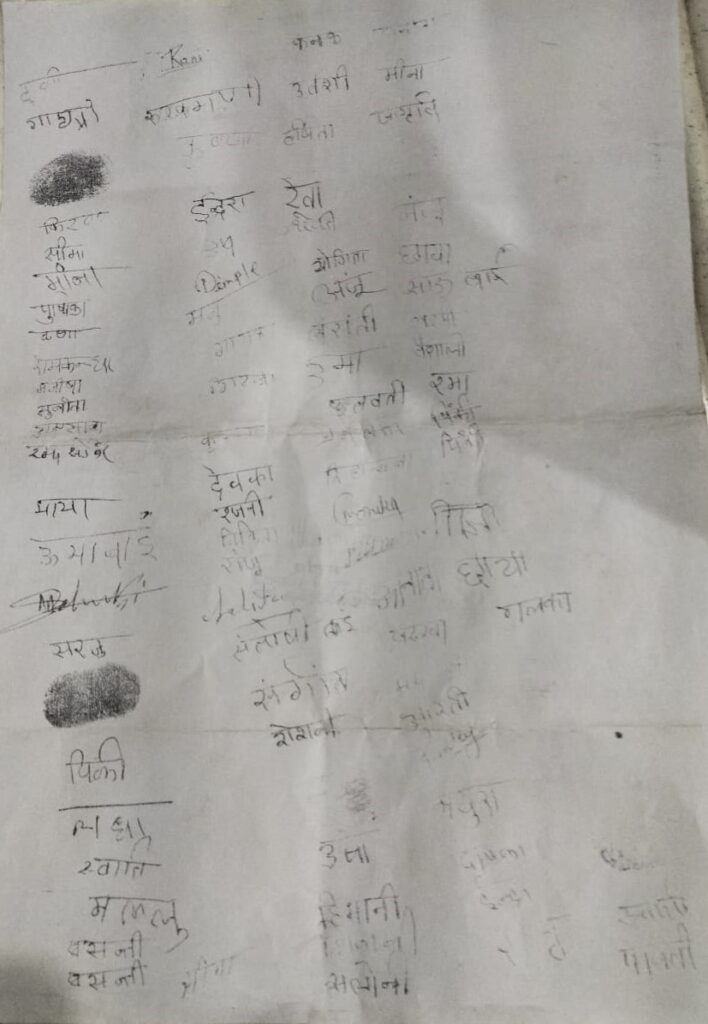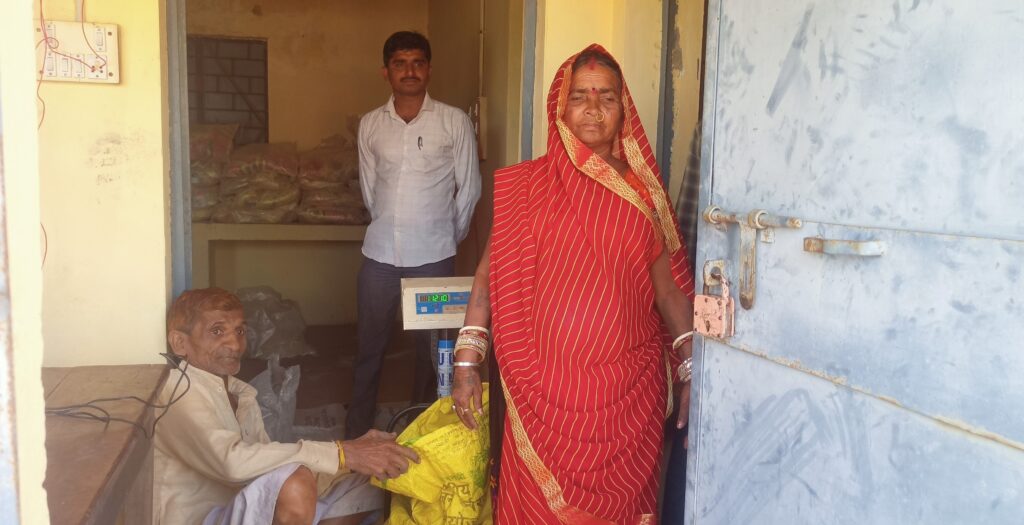Punarvaas, a village in the Baroda Maafi Gram Panchayat, had no ration shop. People from both Baroda Maafi and Punarvaas villages had to trek 2.5 km to Satvaas for rations, losing a day’s wages in the process. And if the shop happened to be shut, or had run out of rations, they had to trudge back empty-handed twice or thrice a month, with their daily wages taking a hit each time.
In January 2024, this problem was discussed at the Hissedari Sabha Meeting. Women from the Self-Help Groups, along with other village women, are members of the Hissedari Sabhas. The purpose of the Hissedari Sabhas is to facilitate villagers coming forward to learn about their rights, and participating in local developmental activities. Through these meetings, women are able to organise and to raise their voices for the sake of improvements to their villages, while trying to ensure that government schemes reach all potential beneficiaries.

The women from the Hissedari Sabha went on to raise the ration shop issue at the next Gram Sabha (Village Governing Body) meeting as well. The Sarpanch asked the body to draft a “standing motion” and work out subsequent modalities. Following this, Samaj Pragati Sahayog’s ‘Health and Nutrition Programme’ team conducted a survey with the cooperation of Hissedari Sabha leaders Jagriti Didi and Anita Didi. Of the 933 families in both villages, 581 were found to be eligible for rations under the Food Security Act, and were enabled to obtain ration cards.


Subsequently, the Hissedari Sabha members submitted written applications to the District Chief Executive and Food Security Officers, Kannod town. Members also got the Panchayat Secretary to complete all the remaining formalities, so that a ration shop might be opened in the neighbourhood without delay. Every 15 days, Jagriti Didi and Anita Didi would ask the Secretary, “What’s happening on the application front? What’s the status? Will we finally have a solution?” Hissedari Sabha members believed that their earlier lack of knowledge had meant they could not even ask government officials why their villages were being neglected, or indeed what rights had been granted to them by the government.
Now the Hissedari Sabhas provide them with detailed information on these matters. They discuss how to solve problems in conjunction with government representatives, and devise suitable action plans.
The untiring efforts of the villagers and Hissedari Sabha members paid off, and Punarvaas village acquired a new ration shop on 01-03-24. Now the ‘Health and Nutrition Programme’ team and the villagers have begun to feel that other local needs, too, can be met without the usual long wait involved. The ration shop in Punarvaas also serves Baroda Maafi village, as the distance between the two is barely one km.
Besides enabling hitherto deprived sections to access government schemes, Samaj Pragati Sahayog’s ‘Health and Nutrition Programme’ works to encourage stronger participation by women in village developmental projects. And the intense discussions on various issues among women members in the Hissedari Sabha meetings have begun to result in several such happy outcomes.

Cinematography: Pritam Gurjar and Sudama Gurjar
Writing: Sunil Upadhyay
Editing: Sandeep Bhati

